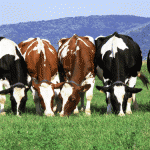
According to a new study, the more coffee you consume, the more you lower your risk of developing one of the most common forms of skin cancer. Image: Shutterstock
Protection against skin cancer can be added to the list of health benefits that come with drinking coffee.
Good news for java junkies: researchers have found the more coffee you drink, the more you may be protecting yourself against skin cancer. According to a report published in the journal Cancer Research, consuming more caffeinated coffee could lower your chances of developing basal cell carcinoma (BCC), the most common form of skin cancer.
Researchers analysed data from the Nurses’ Health Study, a large and long-running study to aid in the investigation of factors influencing women’s health, on more than 112,000 people. A quarter of those studied had developed basal cell carcinoma over a 20 year period. Investigators found the more someone drank caffeinated coffee, the lower their risk of developing this form of cancer.
“Our data indicate that the more caffeinated coffee you consume, the lower your risk of developing basal cell carcinoma,” said Jiali Han of Harvard Medical School in Boston and Harvard School of Public Health in a press release.
According to the Australian Cancer Council, Australia has one of the highest incidences of skin cancer in the world, at nearly four times the rates in Canada, the United States and the United Kingdom, with two in three Australians being diagnosed with skin cancer by the time they are 70.
“Given the large number of newly diagnosed cases, daily dietary changes having any protective effect may have an impact on public health,” said Han.
Scientists noted caffeine seemed to be key factor, since tea, soft drinks and chocolate — all of which contain caffeine — also seemed to cut a person’s risk. Women who drank more than three cups of coffee daily were 21 per cent less likely to develop BCC, compared with women who drank less than one cup of caffeinated coffee per month. For men, this risk reduction was 10 per cent.
However, researchers are not suggesting that you should boost your daily dose of coffee or chocolate based on this one study. “I would not recommend increasing your coffee intake based on these data alone,” Han says. “But, our results add basal cell carcinoma to a list of conditions for which risk is decreased with increasing coffee consumption. This list includes conditions with serious negative health consequences such as type 2 diabetes and Parkinson’s disease.”
As a result of the findings, researchers have said they will carry out further tests in order to work out exactly how caffeine is helping to reduce the risk of illness.
Source: Eureka Alert






